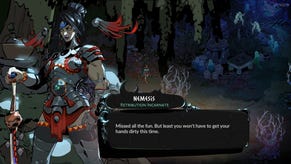Ask RPS: What will the next 150 years of PC gaming hold?
MiniMatt Asks RPS
In addition to resolutions, new years are always good times to start thinking about the futureeeee, with or without a wibbly oooOOOoooOoooOh intonation. Predictions about what's going to happen over the next 12 months abound, some of which are more spurious (and light-hearted) than others. But such near-sightedness is not what we're concerning ourselves with today in this latest edition of Ask RPS. We're looking much further ahead, thanks to this excellent question from MiniMatt.
They ask: "Dearest RPS, This being your 150th year in PC gaming [Ed: this question was submitted in 2023], please tell us what the next 150 years hold? Will VR become universal? Will the desktop PC box survive or will we all move over to laptops & steam decks? Will industry continue to consolidate or fragment? Get yer nostradamus on and tell us Peter Molyneux's future.
Indeed, a lot has changed in the world of PC gaming since our esteemed founding in 1873, so come and find out our best guesses for what the future holds below.
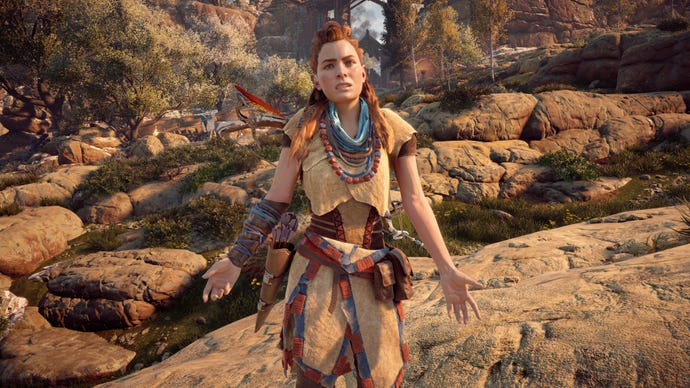
Katharine: Assuming the world doesn't either flood, freeze or boil over and the human race is still a going concern in 150 years time, I predict that desktop PCs will be a thing of the past. Gabe's neural computers will be implanted directly into our brains, and we'll be able to tap the back of our ear to switch between different fields of vision, like channels on a TV. Games (and by extension our Steam library) will live on one of those channels and they'll be beamed directly onto our corneas so they're fully immersive - no more monitors and refresh rates to worry about in this vision of the future, no sir. Gamepads will probably hang in there as physical input devices, much like how we'll continue to crave physical books and the like for our leisure time, but keyboards and mice will be mostly virtual, only appearing in front of us when the relevant computer channel of our brains is active.
Due to the success of their neural computers, Valve will naturally emerge as the mega purveyor of all video games, consuming both Microsoft and Sony in their wake, and becoming the all-consuming face of games (all while Nintendo continues to do their own weird thing much to everyone's surprise and delight). They won't own any actual studios, though - all game makers will exist independently in their own right, with shareholders having been banned worldwide across all forms of business over 50 years ago.
Jeremy: In 150 years, I reckon the desktop PC will survive, but it’ll look a lot different than what we have now. Probably something smaller or maybe even foldable. (If I hadn’t met my wife and switched over to iPhone in order to join the family iMessage chat, I’d probably have a folding Samsung phone by now!). Laptops and Steam Decks will still be around but even teenier and thinner than they are now. And I guess VR might be as pivotal to a computer setup as a mouse and gamepad is today, assuming that they manage to figure out motion sickness stuff for people like me who can’t wear a headset without wanting to hurl.
The industry will be more consolidated in the sense that consoles will probably be irrelevant (or just physical extensions of stuff on cloud-based servers) and everything will be on PC within a reasonable amount of time, which honestly already is the present we’re living in, aside from Bloodborne. Oh, and Nintendo, who will always be doing their own thing and probably will still refuse to release Mother 3 even in 2173.
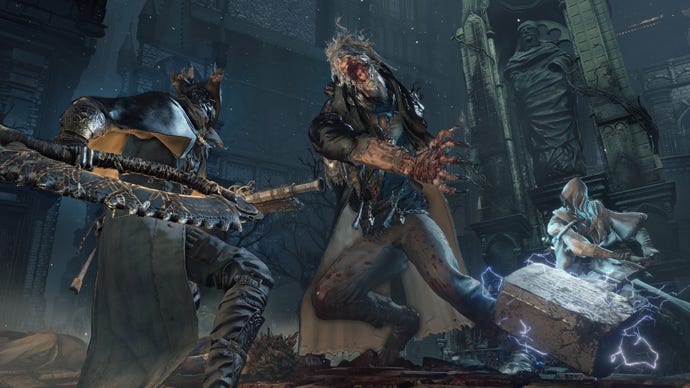
Ollie: 150 years is a long time. In 150 years, the video game medium will be older than the electrical telegraph is now. Others here have made good predictions around what kind of hardware will be used for games in the year 2174, so I'll focus instead on the games themselves. And I think traditional game development will be more or less a thing of the past. AI will be powerful and sophisticated enough in 2174 that multiple megacorporations will be vying to create the first true metaverse, where you can interface with an AI and tell it in plain English what kind of game you'd like to play for this session, and it will create that game for you in moments.
First attempts will be janky and very limited, of course, but the potential will grip the imagination of the world, until something does arrive that creates the true experience. You could create games just with your words, and then share them with the world so you can play with your friends and family. Players could also create local versions of an existing game where they ask their AI to change certain aspects of it, increasing or decreasing the difficulty, adding new quests and UI elements and even whole expansions without any specialist knowledge.
James: Games will not exist as such, with each new release instead taking the form of a limited time event in Fortnite. VR hardware will improve enormously, yet never really takes off, as people think it makes you look like a berk in any century. Desktop designs endure with more RGB than ever, the Black Box rebels’ campaign of unlit resistance having been crushed to a man by a coalition of Asus and Logitech mercenaries. Those lost in the battle are later commemorated in a touching digital tribute, also in Fortnite. Nvidia release the RTX 790080, which is pretty good but costs too much.
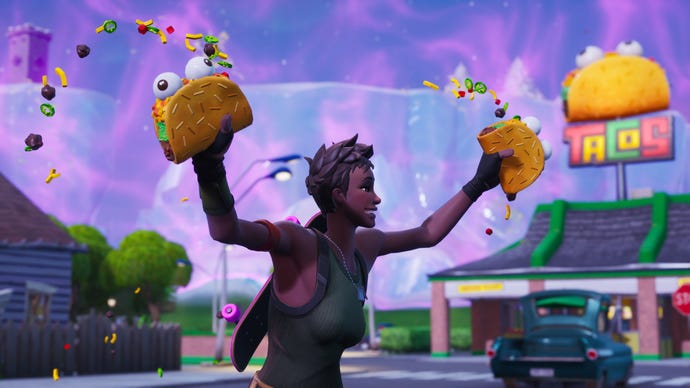
Kiera: The Elder Scrolls 6 has finally released. It has middling reviews.
Alice Bee: My fellow Treehouse denizens have largely given jokey answers and I assume that's for a very good reason: who knows? The very first bit of motion photography, the first example of film, was less than 150 years ago. That is bananas. Video games were invented in the 50s. Stuff changes a whole lot in relatively short spaces of time. So I reckon in 150 years, video games, and in particular desktop PCs, will be like records (also invented within 150 years). Sort of obsolete but cool collectors' items, relegated to special shops for people with special interests, where tall men are allowed to smoke indoors and stand around using wired technology. If you enter one of these shops you will feel instantly unwelcome. The larger games industry will have collapsed like a dying star. The dominant form of entertainment will be something that we can recognise as sharing some common DNA with video games, but will be entirely its own thing that defies our imagination. And/or climate apocalypse.
Ed: Most of the population (they are the only microbes who can survive boiling point) play AI-generated games on TikTok. They do so by banding together in their thousands, forming a body, and swiping on a JBC Tough Phone that's sunk to the bottom of the ocean. TikTok is run by a guy who lives inside a fridge, which proves handy for cooling his implants and keeping his double cream in date. The most popular game is Grand Theft Auto 7, Rockstar's latest release. One Piece continues at full pelt and no one understands how. Keyboards adopted the honeycomb design, so the keycaps had holes and you pressed directly on the switch but sometimes got your fingers stuck. People hated those keyboards.
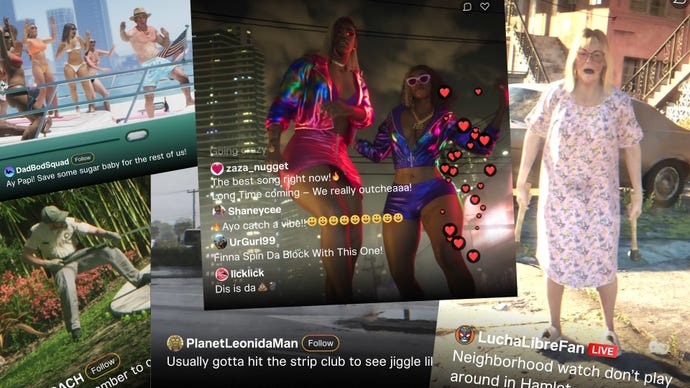
Alice0: Meet Abigail Warner, a professional 3D character artist in the year 2147. Her job is to make Mass Effect's Thane Krios. Her job is to make only Thane Krios. Her job is to always make Thane Krios.
In the mid-21st century, the industry's shift towards live service games and endless remasters and remakes brought an inevitable merge. The only big-budget games remaining are remakes of ancient games. These have existed for over a century in a perpetual state of being remade. So when Abigail finishes making Thane, the model goes live in the game and she starts a new Thane. Each subsequent Thane has marginally higher polygon and texture budgets to suit marginally newer hardware. This week, she decides, it is finally time to bump the polycount of each tooth on his vest's zip from 7000 polygons to 7300.
Abigail is a third-generation Thanesmith. Publishers turned development jobs into inherited roles because it builds generational expertise while avoiding the time and expense of application processes. People are just grateful for a job. Children are expected to study at a parent's side until they reach the legal working age of 7, at which point they become an apprentice. They will largely assist through chores like placing pores, formatting code, restarting crashed test scripts, or recording impact sounds, then assume the family role upon their parent's burnout-related death. The assassin Krios killed Abigail's father, and his mother before him.
Everyone Abigail meets is excited when they learn of her job. She found it funny, at first. Yes, she makes the lizard man people are horny for. She resents him. Sometimes, she takes this anger out on Thane with tiny tweaks. A slightly unflattering jacket cut on one Thane. A dullness to the eyes of another. Tiny acts of rebellion proving to herself that she is still alive. Abigail once spent 37 Thanes progressively raising one eyebrow (a drift slow enough for plausible deniability) to make the beast look foolishly quizzical. She only began migrating the brow back to its original position after an attentive fan launched a campaign which flooded her home with over 73,000 microtransaction death threats. Many of today's games sell sanctioned death threats targeting individual developers because publishers realised rage was an untapped font of fan engagement. Abigail takes some comfort in knowing Thane's fictional fate.
Abigail glances at the son brewing in a genepod on her desk. His tutelage will soon begin. For the family to survive, he must come to know that loathsome lizard's face better than her own.
Edwin:





